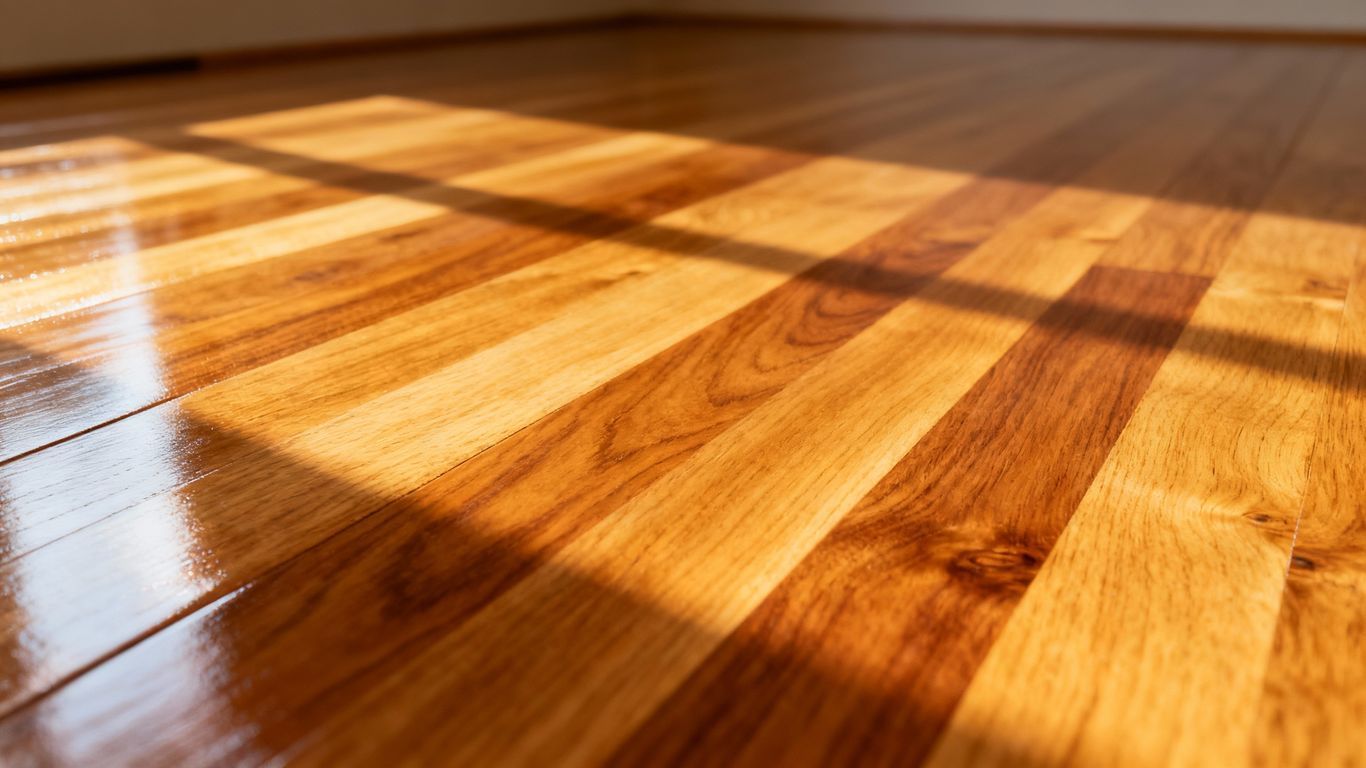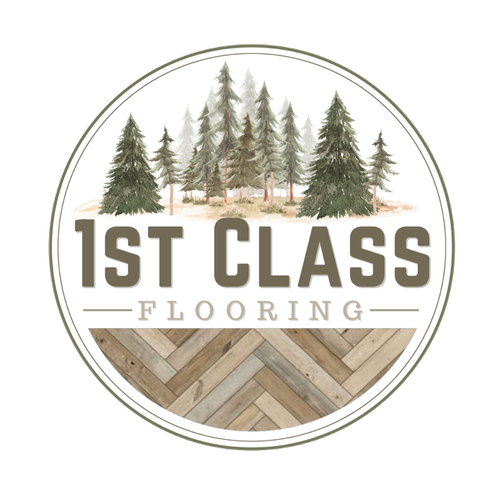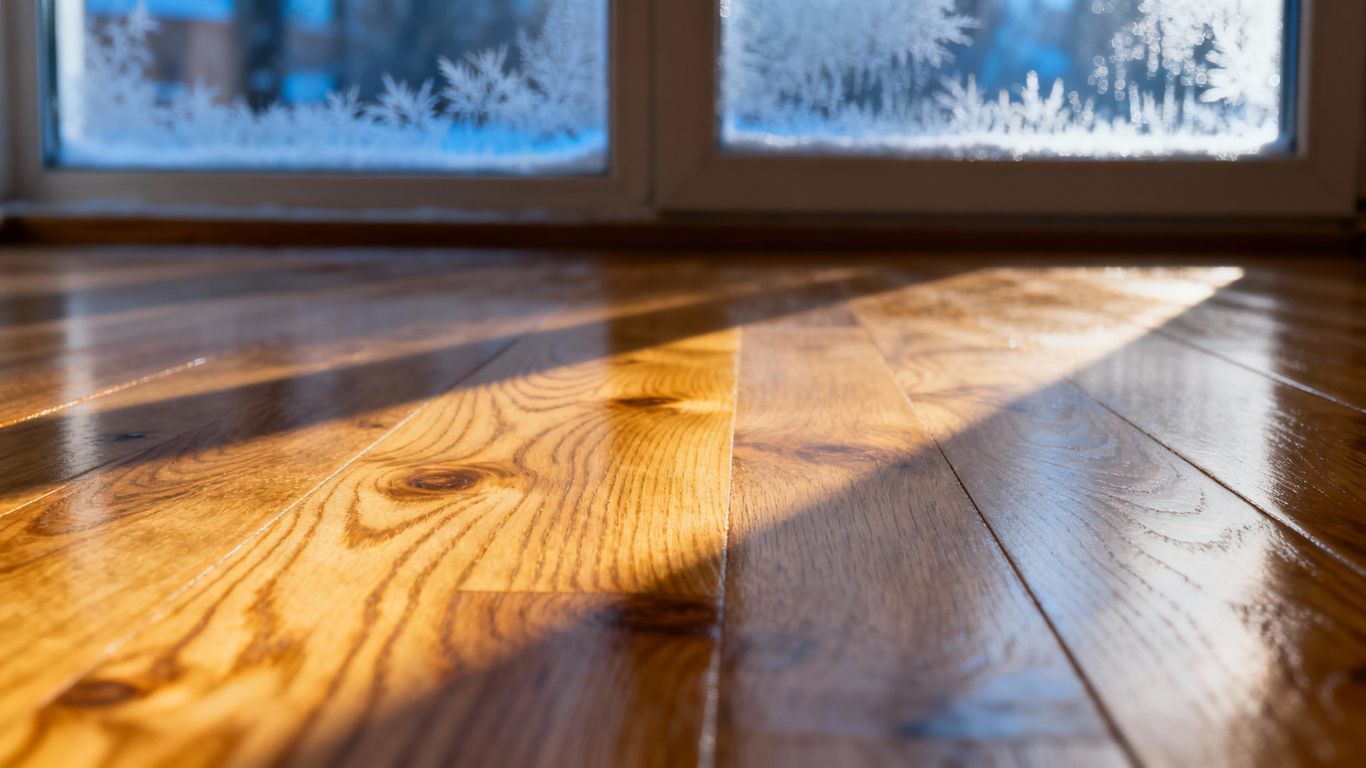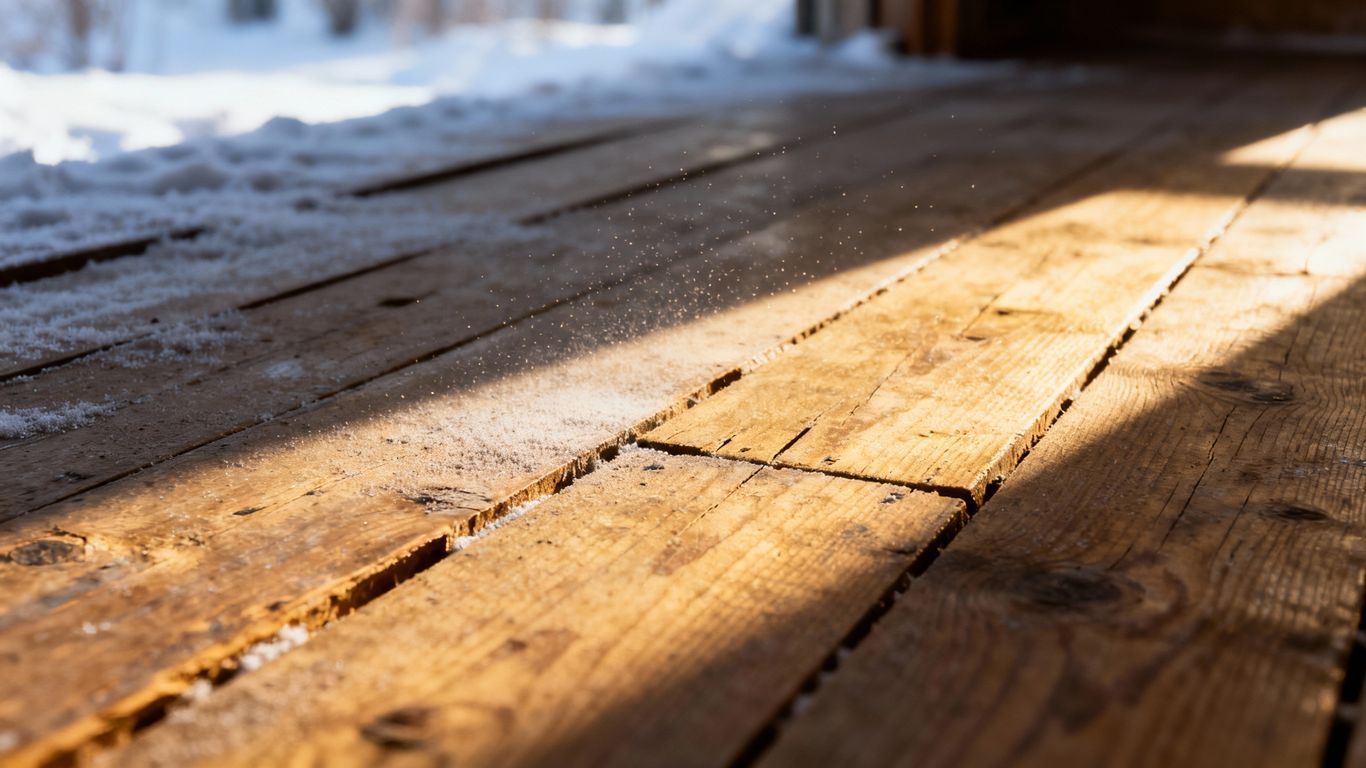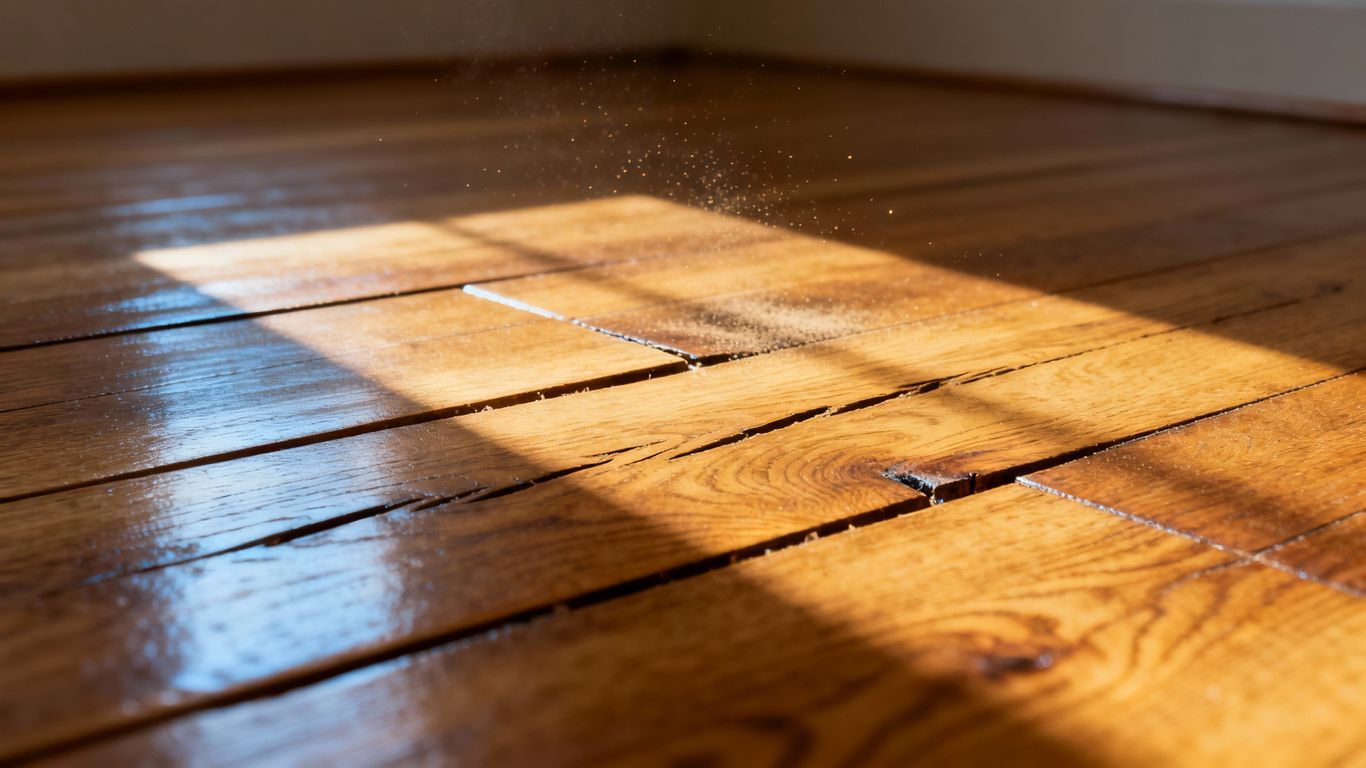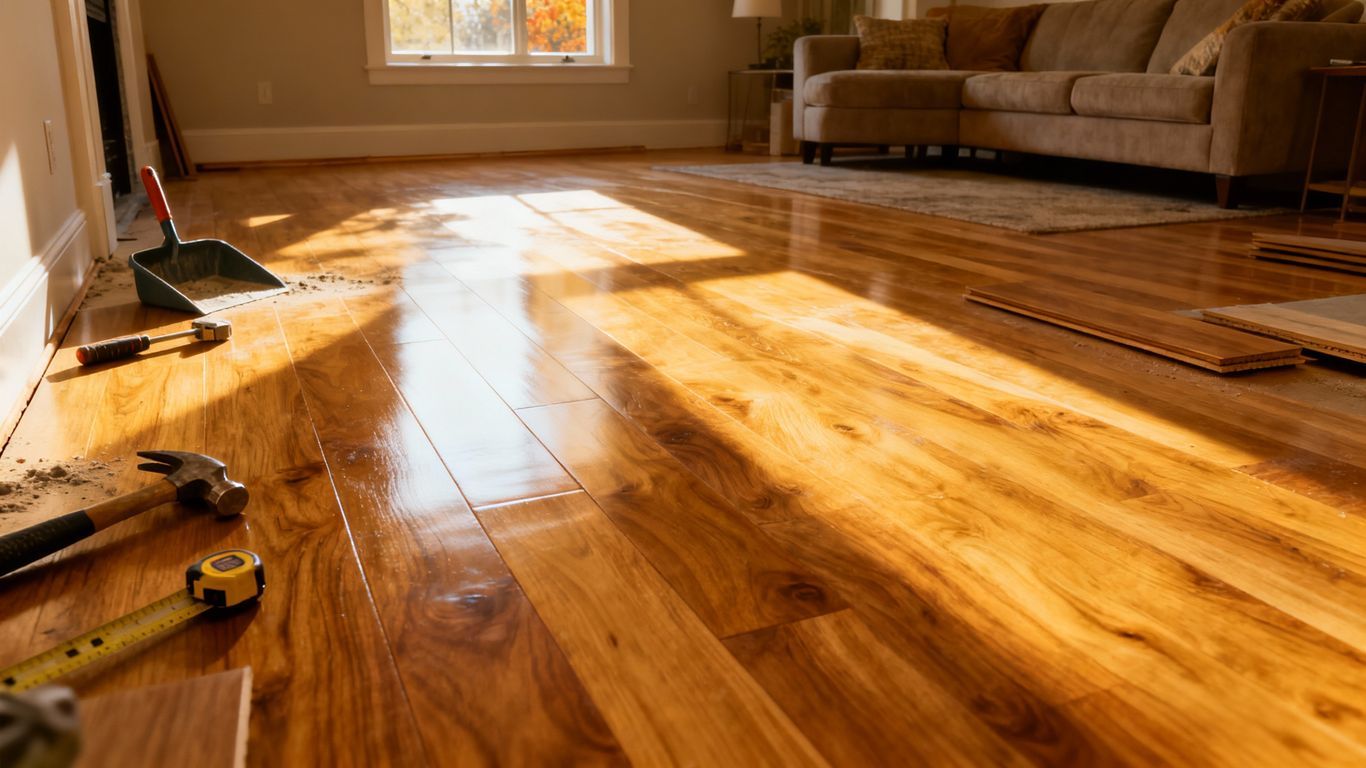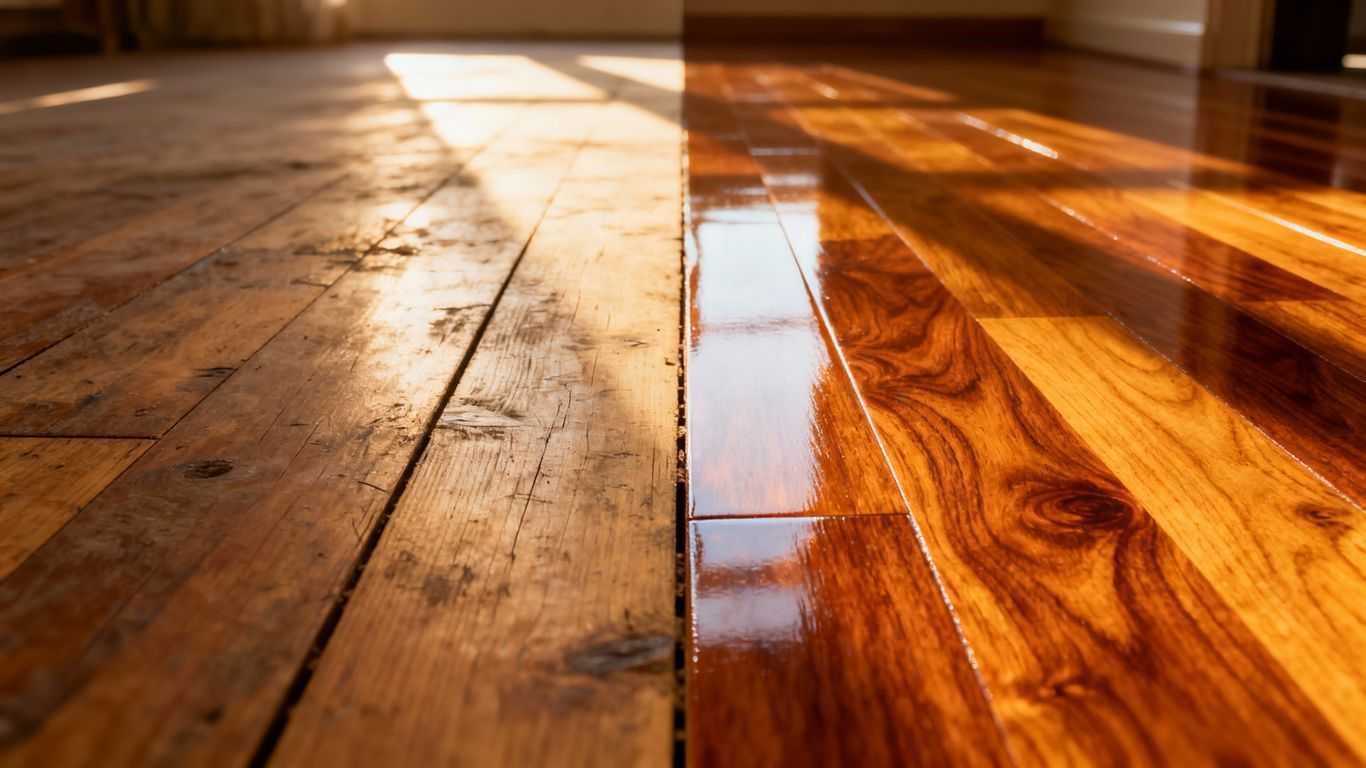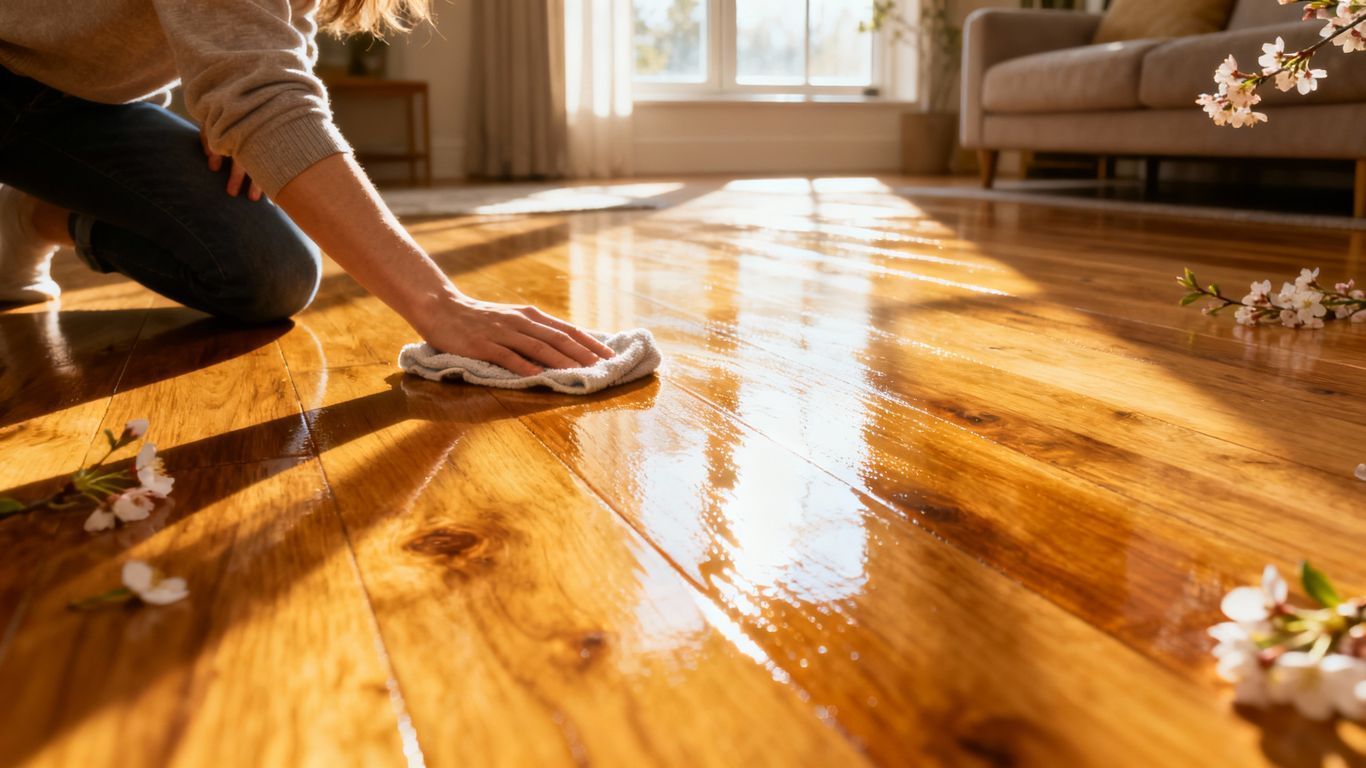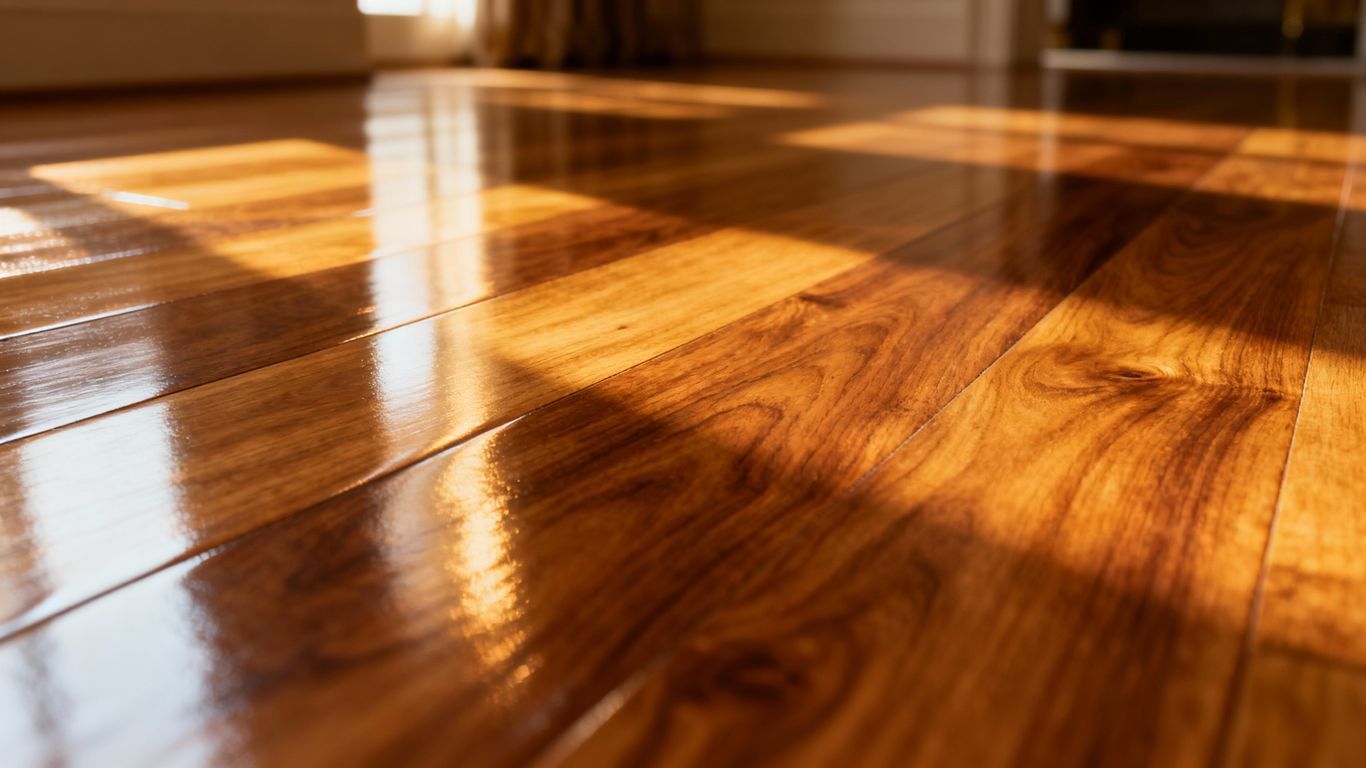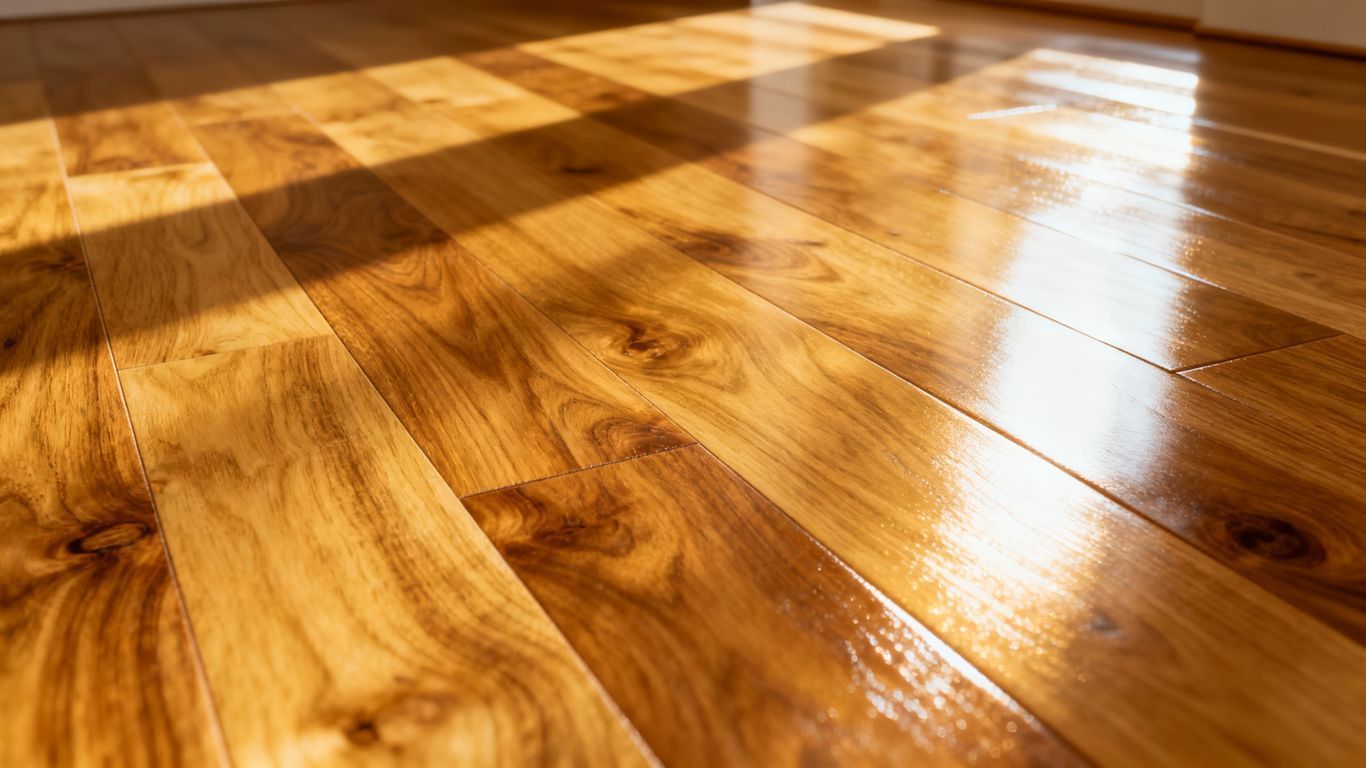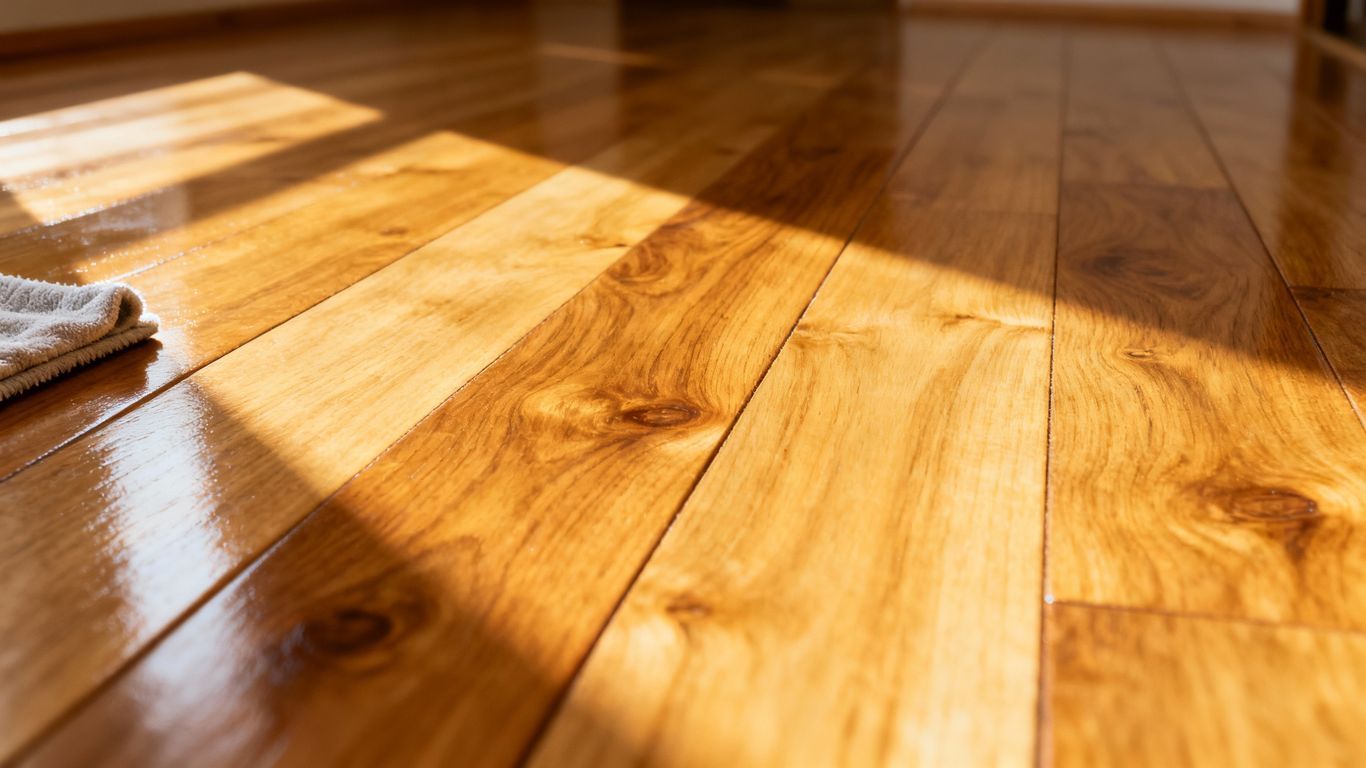Best Durable Flooring for Pets and Busy Homes in Rossville & Chickamauga
Living with pets and a busy household in Rossville and Chickamauga means your floors take a beating. Between muddy paws, spilled drinks, and general wear and tear, finding flooring that can keep up is a challenge. You want something that looks good, lasts a long time, and won't be ruined by your furry friends or a hectic schedule. This guide looks at some of the best pet-friendly flooring options that can handle the daily grind.
Key Takeaways
- Luxury vinyl plank (LVP) is a top choice for pet owners due to its water resistance and scratch-resistant surface.
- Porcelain tile offers extreme durability and is easy to clean, making it great for high-traffic areas.
- Engineered hardwood provides the look of real wood but with better stability in changing humidity.
- Laminate flooring is budget-friendly and can mimic wood or tile, but choose water-resistant types for pet areas.
- When selecting pet-friendly flooring, always consider water resistance, scratch resistance, and ease of cleaning.
1. Luxury Vinyl Plank Flooring
When you've got furry friends running around or just a generally hectic household, finding flooring that can keep up is a big deal. Luxury Vinyl Plank (LVP) flooring is a really popular choice for good reason. It's designed to look like real wood or stone, but it's way more forgiving when it comes to spills and scratches. This makes it a fantastic option for busy homes in Rossville and Chickamauga.
Durability and Pet-Friendliness
LVP is built tough. Its wear layer is usually quite thick, which means it can handle a lot of foot traffic without showing wear and tear too quickly. For pet owners, this is a game-changer. Those accidental potty accidents? LVP is waterproof, so spills just sit on the surface and can be wiped up easily. Plus, it's generally scratch-resistant, so even if your dog likes to dig a little, your floors should hold up pretty well. It's also quieter underfoot than tile, which is a nice bonus.
Style and Maintenance
One of the best things about LVP is the sheer variety of styles available. You can get planks that mimic the look of almost any wood species, from light and airy oak to rich, dark walnut. Many homeowners are choosing LVP to get that high-end look without the high-end price tag or the maintenance worries of real hardwood. Cleaning is usually a breeze too – a quick sweep or mop is typically all that's needed. You can find some really beautiful options that will fit right into your Chattanooga home.
Installation Considerations
LVP often comes in a click-lock system, which can make installation simpler, especially for DIYers. It can often be installed over existing flooring, which saves time and hassle. However, for the best results and to make sure it lasts, professional installation is often recommended, especially if you want a perfectly smooth finish.
When picking out LVP, pay attention to the wear layer thickness. A thicker wear layer generally means better durability, especially in high-traffic areas or if you have multiple pets. It's a small detail that can make a big difference in how long your floors look great.
2. Porcelain Tile Flooring
Porcelain tile is a really solid choice if you're looking for flooring that can handle pretty much anything your pets or busy life can throw at it. It’s made from a denser, less porous clay than ceramic tile, which means it’s super tough and doesn't soak up spills easily. This makes it a fantastic option for homes with dogs who might have accidents or cats who like to knock things over.
Durability and Water Resistance
One of the biggest wins for porcelain tile is its incredible durability. It’s fired at higher temperatures, making it harder and less likely to chip or crack compared to other tile options. Plus, its low water absorption rate means spills, muddy paw prints, or even dropped drinks won't easily seep into the material and cause damage or stains. This water resistance is a huge plus for keeping your floors looking good, especially in areas like kitchens and bathrooms. You can find some really nice porcelain options that mimic the look of wood or natural stone, giving you style without the maintenance headaches. It’s a great way to get that high-end look without the worry of water damage, which is a common concern with other materials. Many homeowners in areas like Fairview, GA, are choosing porcelain for its resilience.
Maintenance and Cleaning
Keeping porcelain tile clean is usually pretty straightforward. A regular sweep or vacuum will take care of loose dirt and debris. For tougher messes, a damp mop with a mild cleaner is typically all you need. Because it’s so non-porous, stains don't tend to set in, which is a lifesaver when you’ve got pets. You won't have to worry about pet odors getting trapped in the grout either, though sealing the grout is still a good idea.
Style and Versatility
Don't think porcelain tile is just for bathrooms anymore. The variety of styles, colors, and patterns available today is amazing. You can get tiles that look exactly like natural wood planks, complete with grain details, or ones that mimic the look of marble or slate. This versatility means you can achieve almost any aesthetic you want, from a rustic farmhouse feel to a sleek modern look. It’s a flooring material that really lets you express your personal style while still being incredibly practical for a busy household.
Porcelain tile offers a great balance of strength, water resistance, and aesthetic appeal, making it a top contender for pet owners and families with active lifestyles. Its ability to withstand wear and tear while remaining easy to clean means less time worrying about your floors and more time enjoying your home.
3. Engineered Hardwood Flooring
Engineered Hardwood Flooring
Engineered hardwood flooring offers a nice middle ground if you're drawn to the look of real wood but need something a bit more forgiving for a busy household. Unlike solid hardwood, engineered planks are made with a core of plywood or high-density fiberboard, topped with a thin layer of actual hardwood veneer. This construction makes it more stable and less prone to expanding or contracting with changes in humidity, which is a big plus in many homes around Rossville and Chickamauga.
It's a great option for pets because the top veneer layer is real wood, giving you that authentic feel and look. However, it's important to choose wisely. The thickness of that top veneer layer, often called the "wear layer," really matters when it comes to durability. A thicker wear layer means you can refinish the floor more times if needed, extending its life.
When considering engineered hardwood for your home, think about these points:
- Wear Layer Thickness: Look for planks with a wear layer of at least 2mm, but 3mm or more is even better if you anticipate heavy traffic or frequent pet activity.
- Installation Method: Many engineered hardwoods can be floated, glued, or even nailed down, offering flexibility depending on your subfloor and preference. This can be a DIY-friendly option for some homeowners.
- Finish Quality: A good quality polyurethane finish with aluminum oxide is key for scratch resistance. This helps protect the natural wood surface from everyday wear and tear.
While it's more resilient than solid hardwood, it's not completely impervious to scratches or dents, especially from sharp pet claws or heavy furniture. Regular sweeping and occasional damp mopping are usually sufficient for cleaning. For more information on regional development and resources, you can check out the Northwest Georgia Joint Economic Development Authority.
Keep in mind that while engineered hardwood can handle more moisture than solid wood, it's still wood. So, immediate cleanup of spills is always a good idea to prevent any potential water damage or staining.
4. Laminate Flooring
Laminate flooring has really come a long way, you know? It used to be that stuff that looked super fake and scratched easily, but today's versions are pretty impressive. It's a budget-friendly option that can mimic the look of real wood or stone without the hefty price tag. For busy homes with pets, it offers a decent balance of durability and affordability. The top layer, often called a wear layer, is pretty tough and can stand up to a good amount of foot traffic, plus it's usually resistant to scratches and stains, which is a big plus when you have furry friends running around. Cleaning is usually a breeze too; a quick sweep or a damp mop usually does the trick.
Pros of Laminate Flooring
- Durability: The wear layer holds up well against daily wear and tear, including pet claws.
- Affordability: Generally less expensive than hardwood or tile, making it a great choice for larger areas.
- Ease of Installation: Many laminate floors use a click-lock system, making DIY installation quite manageable.
- Variety: Available in a huge range of styles, colors, and patterns to match any decor.
Cons of Laminate Flooring
- Water Sensitivity: While some newer laminates have better water resistance, standing water can still cause damage, especially at the seams. It’s not the best choice for bathrooms or laundry rooms.
- Repair Difficulty: If a plank gets significantly damaged, it can be tricky to replace just that one section without affecting the rest of the floor.
- Resale Value: It doesn't add as much perceived value to a home as real hardwood or high-quality tile might.
Laminate Flooring and Pets
When picking laminate for a pet-friendly home, look for options with a thicker wear layer and a good AC rating (Abrasion Criteria). An AC rating of AC3 or higher is generally recommended for residential use with moderate to heavy traffic. This rating indicates how well the surface holds up against abrasion, which is important for resisting scratches from pet nails. You might find some great options, like the laminate flooring mentioned in a recent Fairview, GA listing.
Laminate is a good middle-ground option. It's not as waterproof as tile, but it's way more forgiving than real hardwood when it comes to scratches. Just be mindful of spills and clean them up quickly.
5. Natural Stone Tile Flooring
Natural stone tile flooring is a really beautiful option for any home, especially if you have pets and a busy lifestyle. Think about the unique look you get with materials like granite, marble, or slate. Each tile is one-of-a-kind, giving your floors a really distinct character that you just can't replicate with other materials. It's a flooring choice that brings a touch of natural elegance and durability right into your living space.
When it comes to pets, natural stone is pretty tough. It holds up well against scratches from claws, and most types are pretty resistant to stains, which is a big plus when you have furry friends running around. Plus, it's easy to clean up any messes. Just a quick sweep or mop and you're usually good to go. It's a solid choice if you're looking for something that can handle a bit of wear and tear.
However, it's not all sunshine and rainbows. Natural stone can be a bit more involved when it comes to installation and upkeep. You'll want to make sure it's properly sealed, especially in areas prone to spills, to prevent staining. Also, some stones can be prone to chipping if something heavy is dropped on them, so you might want to be a little careful there. It’s definitely worth looking into the specific properties of the stone you choose, like how porous it is. For example, some homeowners find that sealing their stone floors regularly helps maintain their appearance and protect against spills.
Durability and Pet-Friendliness
Natural stone is generally quite durable. It can withstand heavy foot traffic and the general chaos that comes with pets. Most types are scratch-resistant, which is a huge benefit if you have dogs or cats with sharp nails. Cleaning up after pets is also straightforward, as spills can usually be wiped up without much fuss, provided the stone is properly sealed.
Maintenance and Upkeep
Proper sealing is key for natural stone. Depending on the type of stone and its porosity, you might need to reseal it periodically, perhaps every year or two, to keep it protected. Regular sweeping and occasional mopping with a pH-neutral cleaner will keep it looking its best. Avoid harsh chemicals or abrasive cleaners, as these can damage the surface.
Aesthetics and Variety
The visual appeal of natural stone is undeniable. You can find it in a wide range of colors, patterns, and finishes, from polished marble to rustic slate. This variety allows you to create a look that perfectly matches your home's decor. It really adds a sense of luxury and permanence to any room.
6. Cork Flooring
Cork flooring is a really interesting option for homes with pets and a lot going on. It comes from the bark of cork oak trees, which is pretty neat because the tree isn't harmed when they harvest it. This makes it a sustainable choice, which is a bonus.
One of the best things about cork is how soft it is underfoot. It has a natural cushioning that can be really nice, especially if you spend a lot of time on your feet. This softness also means it's a bit quieter than some other hard flooring options, which is great for busy households. Plus, it's naturally resistant to mold and mildew, which is always a good thing.
However, cork isn't the toughest kid on the block. While it's durable, it can be scratched or dented by sharp pet claws or heavy furniture. Spills need to be wiped up pretty quickly because cork can absorb liquids if it's not properly sealed. Think of it like a good quality wood – it needs a bit of care.
Here's a quick rundown of what to expect:
- Comfortable underfoot: It's got a natural give that's easy on the joints.
- Good sound dampening: Helps cut down on noise from footsteps and toys.
- Eco-friendly: Harvested from renewable resources.
- Naturally resistant: Repels mold and insects.
When it comes to maintenance, keeping it clean is pretty straightforward. Regular sweeping or vacuuming will take care of most dirt. For spills, a damp mop usually does the trick, but you want to avoid soaking the floor. You'll also want to make sure you're using cleaning products that are safe for cork, as harsh chemicals can damage the finish.
If you're looking for a flooring that feels good, sounds good, and is a bit kinder to the planet, cork is definitely worth a look. Just be prepared to give it a little extra attention to keep it looking its best, especially with furry friends around.
7. Bamboo Flooring
Bamboo flooring has really gained popularity over the last few years, and for good reason. It's often touted as an eco-friendly option, which is a big plus for many homeowners. Plus, it can look pretty sharp, giving your home a modern feel.
When it comes to durability, bamboo is a bit of a mixed bag. It's a grass, not a wood, and how it's processed makes a huge difference. Strand-woven bamboo is generally the toughest, often outperforming traditional hardwoods in scratch resistance. However, some types can be prone to denting, especially if they're not the strand-woven variety.
For pet owners, this means you'll want to be careful. While it can handle some wear and tear, sharp claws could potentially scratch or dent the surface, depending on the bamboo's hardness and finish. Spills are also a concern; you need to wipe them up quickly because bamboo isn't naturally waterproof.
Here's a quick rundown of what to consider:
- Hardness: Look for bamboo that's rated high on the Janka hardness scale, especially strand-woven types.
- Finish: A good quality polyurethane finish will offer better protection against scratches and moisture.
- Maintenance: Regular sweeping and occasional damp mopping are usually sufficient. Avoid harsh cleaners.
- Installation: It can be installed similarly to hardwood, either glued down or floated.
One thing to keep in mind is that not all bamboo flooring is created equal. The manufacturing process, particularly how the bamboo fibers are compressed and bonded, significantly impacts its strength and resistance to damage. Always check the product specifications for hardness ratings and warranty information before making a purchase.
If you're dealing with a lot of foot traffic or have pets that might be a bit rough on the floors, you might want to explore options like vinyl plank or porcelain tile first. But if you're set on bamboo, choosing a high-quality, strand-woven product with a robust finish is your best bet. It's a stylish choice, but maybe not the absolute toughest option out there for a really busy household. You might also want to look into pest control options if you're worried about insects, as some wood-like materials can attract them, though this is less common with properly treated bamboo. You can find some helpful tips on pest control if that's a concern.
8. Rubber Flooring
When you think about flooring for pets and busy homes, rubber might not be the first thing that pops into your head, but it really should be. This stuff is tough. It’s incredibly resilient and can handle a lot of foot traffic, spills, and even those surprise accidents from our furry friends. Plus, it’s got a good amount of grip, which is a big plus for pets who might be a little unsteady on their paws. It’s also surprisingly comfortable underfoot, which is nice if you’re on your feet a lot.
Benefits of Rubber Flooring
- Durability: Rubber is naturally resistant to wear and tear, making it a great choice for high-traffic areas. It can withstand heavy furniture and constant movement without showing significant damage.
- Water Resistance: Spills are no match for rubber flooring. It doesn't absorb liquids, which means cleaning up messes is usually pretty straightforward. This also helps prevent mold and mildew growth.
- Comfort and Safety: The natural cushioning of rubber provides a comfortable surface to stand on. Its slip-resistant texture is a major safety feature, especially important in homes with pets or young children.
- Low Maintenance: Generally, rubber flooring is easy to clean. A simple sweep and mop are usually all that's needed to keep it looking good.
Considerations for Rubber Flooring
While rubber flooring is a solid contender, there are a few things to keep in mind. Some types can have a distinct odor when first installed, though this usually dissipates over time. Also, while it’s water-resistant, certain harsh chemicals or oils could potentially stain or damage the surface, so it’s good to know what cleaning products are safe. It’s also worth checking out different types, as some are better suited for indoor use than others, like the options available for outdoor spaces.
You might think rubber flooring is just for gyms or garages, but modern rubber flooring comes in a surprising variety of styles and colors. You can find tiles or sheets that can really change the look of a room, making it both practical and stylish for your home.
9. Concrete Flooring
Concrete flooring has really come a long way, and it's becoming a popular choice for homes, especially those with pets and a lot going on. It's super tough, which is a big plus when you've got dogs running around or kids dropping things. Plus, it can look really modern and sleek, or you can go for a more rustic vibe depending on how you finish it.
Durability and Maintenance
When it comes to standing up to wear and tear, concrete is a real champion. It's incredibly hard-wearing, so scratches and dents from pet claws or furniture moving are usually not a big issue. Cleaning is generally straightforward too. A good sweep and mop usually does the trick for everyday messes. For tougher stains, you might need a specific concrete cleaner, but overall, it's pretty low-maintenance.
Customization Options
One of the coolest things about concrete is how much you can customize it. You can stain it in a bunch of different colors, polish it to a high shine, or even add decorative patterns. This means you can really make it fit your home's style, whether you're going for a minimalist look or something more unique. It’s a great way to get a custom floor without breaking the bank, kind of like finding a hidden gem on a road trip from Fort Payne to Chattanooga Tennessee Aquarium.
Pros and Cons
- Pros:
- Extremely durable and long-lasting.
- Resistant to scratches, dents, and water.
- Easy to clean and maintain.
- Highly customizable with stains, polishes, and patterns.
- Can be a cost-effective option, especially for large areas.
- Cons:
- Can be cold underfoot if not heated.
- May require sealing to prevent staining from spills.
- Can be hard and unforgiving if something is dropped.
- Installation can be complex and requires professional help for best results.
While concrete might seem like a simple material, the finishing process is where the magic happens. The right sealants and finishes are key to making it pet-friendly and easy to clean, preventing those inevitable spills from becoming permanent marks.
Suitability for Pets
For pet owners, concrete is a solid choice. It doesn't absorb odors like carpet, and accidents are usually easy to wipe up before they set in. The hard surface means pet nails won't scratch it up, which is a huge relief for many. Just make sure any sealants used are non-toxic once cured.
10. Epoxy Flooring
Epoxy flooring is a bit of a different beast compared to the other options we've looked at. It's not really a 'plank' or 'tile' you buy off the shelf in the same way. Instead, it's a liquid coating that gets applied to a concrete subfloor, usually by professionals. Once it cures, it forms a super hard, seamless surface. This makes it incredibly tough and resistant to just about anything your pets or busy life can throw at it.
Think about garages – that's where you often see epoxy. It can handle heavy traffic, oil spills, and all sorts of messes. For a home, especially one with pets, this translates to a floor that's practically indestructible. It's also really easy to clean. A quick sweep and mop usually does the trick, and since it's seamless, there are no grout lines or cracks for dirt and pet hair to get stuck in. Plus, you can get it in a ton of colors and finishes, even with decorative flakes mixed in for a bit of flair. It's a really practical choice if you're looking for something that can take a beating and still look good.
Pros of Epoxy Flooring
- Durability: Seriously tough stuff. It resists scratches, impacts, and stains really well.
- Waterproof: Spills? No problem. It won't soak in or damage the floor.
- Low Maintenance: Easy to clean, which is a big win with pets.
- Customizable: Lots of color and design options available.
Cons of Epoxy Flooring
- Requires Professional Installation: Most people aren't going to DIY this. It needs proper prep and application.
- Can Be Slippery: Without added texture, it can get slick when wet, which might be a concern with pets or older folks.
- Subfloor Dependent: It needs a clean, sound concrete subfloor to adhere to properly. If your concrete is cracked or damp, you'll have issues.
- Not for Every Room: While tough, it might feel a bit too industrial for living rooms or bedrooms in some homes. It's more common in basements, mudrooms, or kitchens.
If you're considering a major renovation, like updating a property at 478 Dedmon Rd, Ringgold, GA 30736, epoxy could be a fantastic, modern option for high-traffic areas or even a whole level if you like the aesthetic. It's a flooring choice that prioritizes function and resilience above all else.
Is Epoxy Flooring Good for Pets?
Yes, epoxy flooring is generally excellent for pets. Its non-porous surface means accidents are easy to clean up, and it doesn't hold onto odors. The durability also means it can withstand scratching from claws, though very sharp objects could potentially scratch the surface if you're not careful. The main thing to consider is slip resistance; look for options with added anti-slip additives if your pets are prone to skidding.
Thinking about epoxy floors? They're a fantastic choice for a tough, shiny finish that lasts. Whether it's for your garage, a workshop, or even a cool basement space, epoxy offers great protection and looks amazing. Want to see how we can transform your floors? Check out our website for ideas and to get a quote!
Wrapping It Up: Your Pet-Proof, Life-Proof Floor
So, picking out new floors for your place in Rossville or Chickamauga can feel like a big job, especially when you've got furry friends and a busy household. We've looked at some solid options that can handle the daily grind – think muddy paws, spilled drinks, and all the comings and goings. Whether you lean towards the tough nature of luxury vinyl plank, the classic look of tile, or something else entirely, the key is finding a floor that works for your life. It’s about making your home look good and function well, without you having to worry every time a dog toy gets dropped or a toddler makes a mess. Take your time, check out the samples, and choose something that’ll stand up to whatever life throws at it.
Frequently Asked Questions
Why is luxury vinyl plank flooring good for pets?
Luxury vinyl plank (LVP) is a fantastic choice because it's super tough and can handle muddy paws, spilled water bowls, and lots of running around. It looks like real wood or stone but is much easier to clean and won't get scratched easily. Plus, it's comfy underfoot, which is nice for your pets when they're lounging.
How does porcelain tile hold up in a busy household?
Porcelain tile is like a superhero for busy homes! It's incredibly strong, doesn't scratch, and laughs off spills and stains. Cleaning is a breeze – just a quick mop. It's also great for homes with kids and pets because it's very hygienic and easy to keep looking nice, even with daily wear and tear.
Is engineered hardwood a good choice if I have pets?
Engineered hardwood offers the beauty of real wood but is built to be tougher. It has a strong top layer that resists scratches and dents better than solid hardwood, making it a good option for homes with active pets. It can also handle changes in humidity better, which is helpful in different weather conditions.
What are the pros and cons of laminate flooring with pets?
Laminate flooring is a budget-friendly option that can look like wood or stone. It's pretty tough against scratches and stains, which is great for pets. However, if a lot of water sits on it for too long, it can get damaged. So, it’s best to wipe up spills quickly.
What's the most important thing to consider when picking pet-friendly floors?
When choosing flooring, think about how easy it is to clean, how well it resists scratches and water, and if it's comfortable for your pets. Materials like vinyl, porcelain, and even some types of engineered wood are usually top picks because they can take a beating and still look good.
Are there specific flooring types that are easier to clean after pets?
Yes, absolutely! Many homeowners with pets prefer flooring that is easy to wipe down and doesn't trap pet hair or odors. Materials like LVP, tile, and even sealed concrete are excellent because they are non-porous, meaning liquids and messes don't soak in, making cleanup much simpler.
